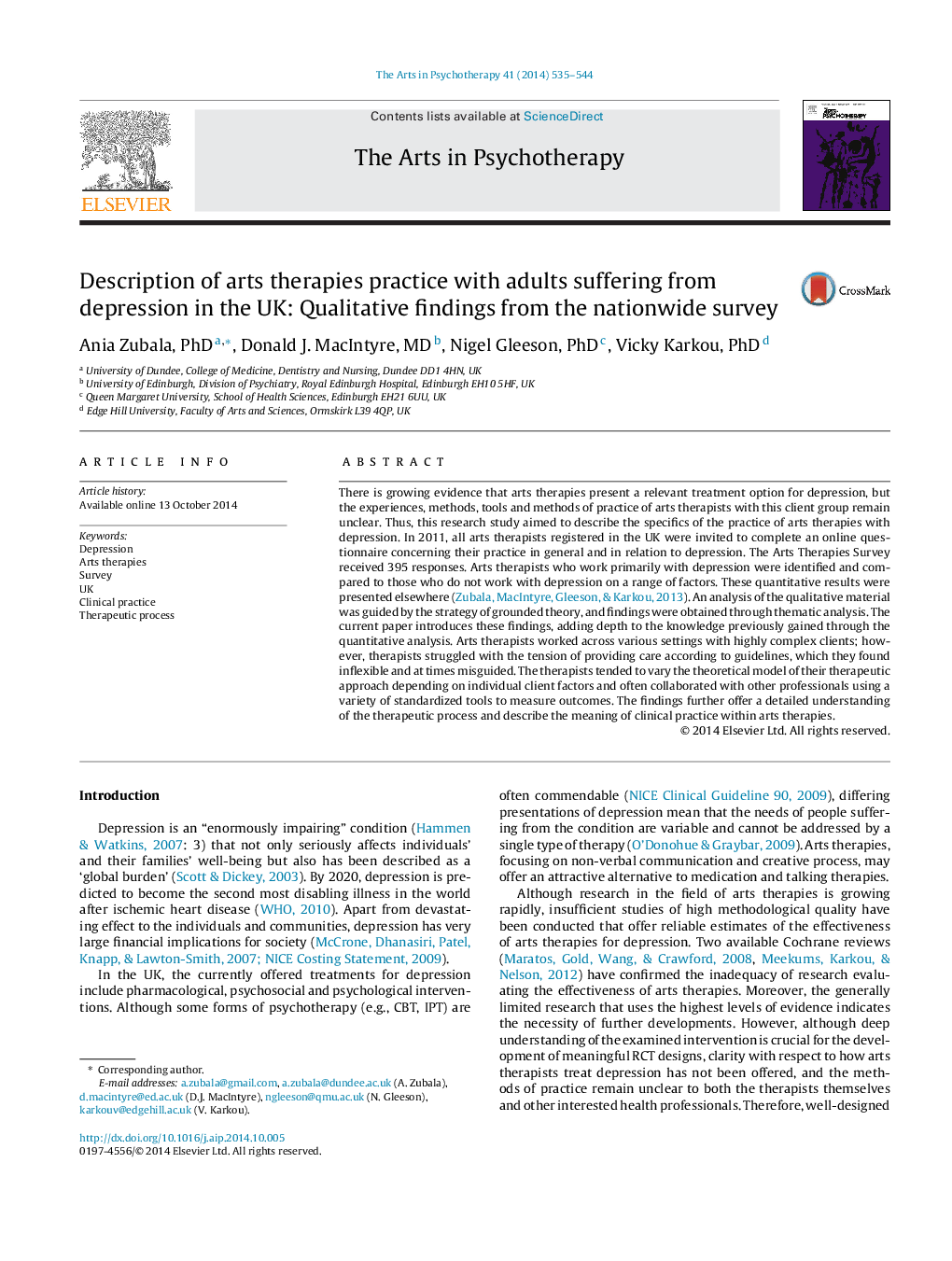| Article ID | Journal | Published Year | Pages | File Type |
|---|---|---|---|---|
| 343608 | The Arts in Psychotherapy | 2014 | 10 Pages |
•Arts Therapies Survey was conducted in the UK in 2011; 395 arts therapists participated.•Therapists who work primarily with depression shared their experience in open-ended questions.•Themes grouped in categories offer an in-depth description of arts therapies practice with depression.•Categories: (1) information about arts therapists, (2) characteristics of clients with depression and (3) working with depression.•Major themes include the role of therapeutic process, tools used in therapy, benefits of arts therapies, and others.
There is growing evidence that arts therapies present a relevant treatment option for depression, but the experiences, methods, tools and methods of practice of arts therapists with this client group remain unclear. Thus, this research study aimed to describe the specifics of the practice of arts therapies with depression. In 2011, all arts therapists registered in the UK were invited to complete an online questionnaire concerning their practice in general and in relation to depression. The Arts Therapies Survey received 395 responses. Arts therapists who work primarily with depression were identified and compared to those who do not work with depression on a range of factors. These quantitative results were presented elsewhere (Zubala, MacIntyre, Gleeson, & Karkou, 2013). An analysis of the qualitative material was guided by the strategy of grounded theory, and findings were obtained through thematic analysis. The current paper introduces these findings, adding depth to the knowledge previously gained through the quantitative analysis. Arts therapists worked across various settings with highly complex clients; however, therapists struggled with the tension of providing care according to guidelines, which they found inflexible and at times misguided. The therapists tended to vary the theoretical model of their therapeutic approach depending on individual client factors and often collaborated with other professionals using a variety of standardized tools to measure outcomes. The findings further offer a detailed understanding of the therapeutic process and describe the meaning of clinical practice within arts therapies.
Graphical abstractFigure optionsDownload full-size imageDownload as PowerPoint slide
